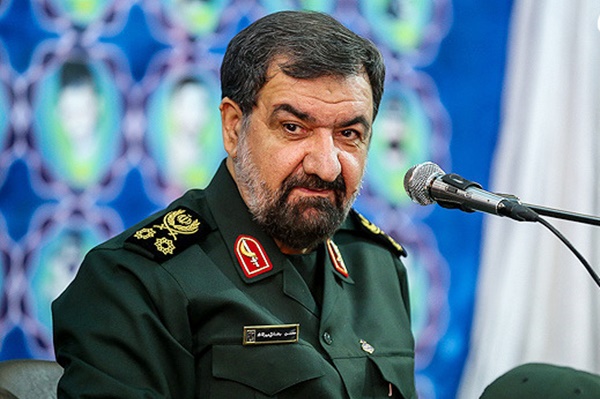According to a report by IFP, Mohsen Rezaei, the former IRGC Commander and the incumbent secretary of Iran’s Expediency Council, recently talked about a range of issues including the nuclear deal between Tehran and world powers, the US extension of Iran Sanctions Act (ISA) and Iran’s reaction to the move.
“Mr. Obama did not sign off the law [ISA extension proposed by the US Congress], and the Iranian administration, in reaction, put working on nuclear propulsion program on its agenda. However, this is not enough, because the dignity of Iran’s foreign policy should not be harmed,” Rezaei said in a televised interview on Wednesday.
“I believe the Joint Comprehensive Plan of Action (JCPOA) is like a snowball that is gradually melting. We should not let it turn into a corpse, and it should have impact on people’s lives,” he went on to say.
“During the nuclear negotiations, three teams – a nuclear, a diplomatic, and an economic team – should have taken part in the talks. The nuclear and diplomatic teams had a good performance, but there was no economic team. The economic team should have proposed certain regulations to be implemented by the US Treasury Department after the deal, but it turned to a historic negligence, whose results we have seen.”
Statistics Declared by Government Are Not Proportional to Economic Conditions
Rezaei further referred to the economic growth rate of 7.4% recently announced by President Hassan Rouhani, and said, “We have statistics that the economic growth rate is 6.4%, and if we subtract the oil [income] from that number, the rate would be standing at 4%.”
“This rate was 1% last year; what has happened within the past six months that it has risen to 7.4%? We would be happy if it even rises to 9%, but the declared statistics should be proportional to the country’s economic conditions,” he went on to say.
“The government recently ratified a good plan to inject around $3 billion into quick-impact firms, but the plan had two problems: first, it was too late; the government was expected to implement such a plan three years ago; second, Rouhani’s administration should not act in a conservative way, and should allocate greater amounts of money to this field,” he added.
Corruption in Administrative System Prevents Economic Mobility
Rezaei also referred to the problems in Iran’s management system and decision-making process, and called for a fight against corruption, as reported by various Iranian news agencies.
“Corruption in administrative system prevents economy from moving. This corruption prevents meritocracy, and leads to the appointment of inept executives and bribery,” he noted.
He also called for giving further authority to regional and provincial bodies, saying, “One of the country’s good governors, who was wounded in Syria [in the fight against terrorism] and is one of our good friends, used to say that if he wants to move a simple power pole, he needs to coordinate it with the relevant ministry, and he does not have even that much authority.”
“Authority should be given to provinces and counties in the field of production and services; however, the central government should be the authority in the fields of security and military,” he added.
“I ask our politicians and statesmen not to undermine the country’s national security in negotiations and talks even if they cannot provide further services. We all should try to improve the country’s economy while maintaining our security,” Rezaei noted.
